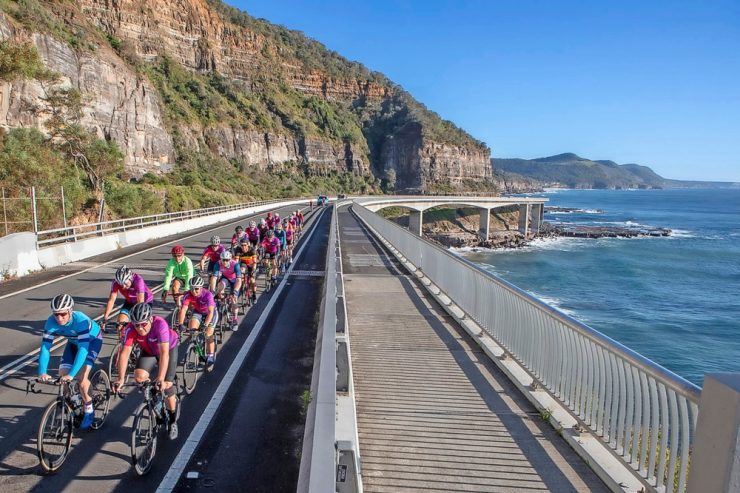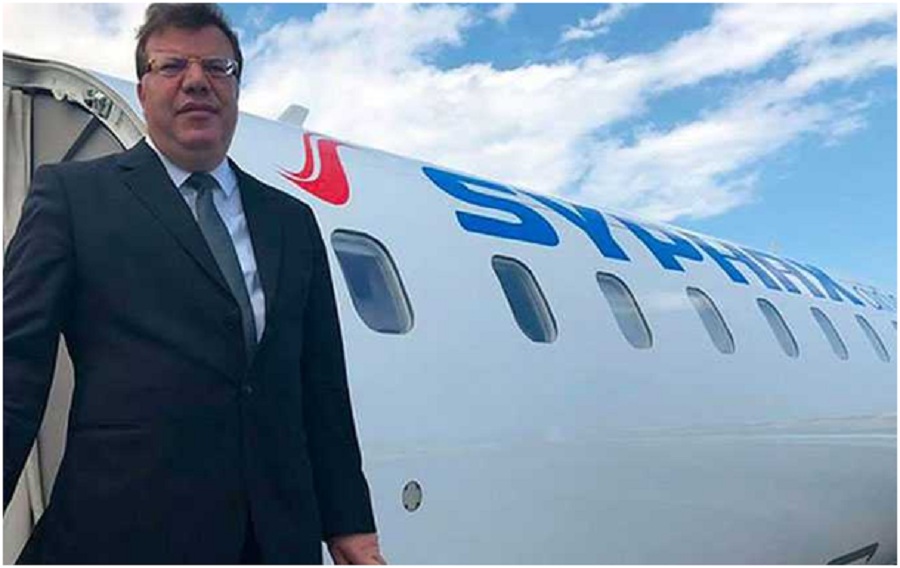The Road World Championships in Wollongong, Australia, kick off on Sunday with the time trials of the Espoires, the women’s and men’s elite. After the cancellation of Christine Majerus due to injury, the FSCL travels to the Down Under with twelve athletes. Christian Helmig, technical director of the national cycling federation, explains in an interview with the newspaper what problems the world title fights in Australia will bring this year. But he also talks about the sporting goals with which the cycling association travels to Australia.
Communication:
The time difference brings with it two big problems. First, communication falls into one of these difficulties. Wollongong is eight hours ahead of Central European Summer Time. So when it’s 12pm in Luxembourg, it’s 8pm in the Australian coastal city. This was an obstacle, especially before the World Cup, when Helmig had to plan the preparations for the races. “Organizational things that can be done with a short phone call take a lot longer,” he explains. “Sometimes it takes a day to reply to an email. In the long run it can become exhausting ”. In Australia, hotels are also booked through an agency. This puts another person in the middle. “But it’s not something that is impossible to solve,” says the FSCL operator.
Dysrhythmia:
The second big problem that the time difference brings with it is the threat of jet lag among drivers. Jet lag is the name given to a temporary disturbance of well-being caused by the rapid crossing of time zones. This can make people feel tired and drained. “But we only do a road race and not a tour. This is an advantage, “says Helmig.” But obviously it’s not ideal. “Kevin Geniets, Colin Heiderscheid, Luc Wirtgen and Arthur Kluckers, for example, will take part in the Tour de Luxembourg, which ends this Saturday. September Kluckers starts with U23, Geniets, Wirtgen and Heiderscheid start on 25 September.
To avoid the threat of jet lag, the FSCL has developed a program with LIHPS that cyclists can use to regulate their sleep patterns in advance. “The gearbox could work faster this way,” says Helmig. “It’s just a matter of getting into the right wake-sleep rhythm quickly.” But the example of the Tokyo Olympic Games shows that runners who had just finished the Tour de France performed better than runners who acclimatized in Japan. “Ultimately, it’s also an individual matter of the body,” says Helmig, summing up: “The time difference isn’t ideal. But it’s not something unexpected or something we or the athletes can’t handle.”
The logistics:
The main problem at the World Cup is the logistics. “We have to settle for less,” says Helmig. Depending on the size of the team, the FSCL is used to participating in a race with two or three team vehicles, one truck and two Crafters. This would ensure flexibility on the ground, but in Australia it is rather limited. Helmig and his team organized rental cars, the team doesn’t have a workshop and they didn’t bring as many spare parts with them as usual. After all, Wollongong’s situation fits the teams. “If something goes terribly wrong, we should most likely bring the material on site. We are about an hour from Sydney ”. But the approach is clearly defined. “We have to limit ourselves and take only what is absolutely necessary. I hope, however, that in the end we will have everything in place and we will not have to do without anything, especially something essential “.
Travel:
Helmig himself was the first to travel to Australia. The Technical Director has been on site since 9 September to prepare, among other things, organizational matters. For example, he collects rental cars or prepares cyclists’ rooms in hotels. The first group that followed him revolved around Mathieu Kockelmann, the first Luxembourgian to take part in the junior time trial on Tuesday. He arrived on September 12th. The next group of young pilots will land in Australia on Saturday. Helmig would have liked to have all the other athletes on this flight, but as some runners are still active in the Tour de Luxembourg, this plan didn’t work. Geniets, Luc Wirtgen, Heiderscheid and Kluckers will travel to Australia in a third wave.
To travel to Australia with the twelve athletes and look after them on site in optimal conditions, the costs for the FSCL amount to approximately 150,000 euros. This consumed a sixth of the annual budget, explains Camille Dahm, president of the National Cycling Association. You can read a detailed report on how Dahm intends to cover these costs in the Tuesday edition of the newspaper.
–
Quota places open:
21 Luxembourgish cyclists could have started in Australia. After the cancellation of Christine Majerus due to injury, the FSCL travels to the Down Under with twelve drivers. Helmig reveals that this year no more athletes would have started a World Cup in Europe. “The sporting factor is clearly in the foreground,” he says. “We see a World Cup as part of the youth and U23 training. It depends on athletic performance. If the level is not there yet or other sporting reasons speak against a selection, then we will not fill the squad. ”
Sports goals:
With Mathieu Kockelmann, the FSCL has a red-hot iron in the fire. In Portugal, the 18-year-old won the European junior title in the time trial last July. “Why shouldn’t he be able to finish this performance again?” says Helmig. “We will not go to Australia expecting to win a medal. But Mathieu should show his best side in the time trial. You can better control many factors in the time trials, which makes things easier for us.” Even in road racing, the FSCL is sending an ambitious duo in the race with Kockelmann and Mil Morang. But the Espoirs too, five of which are starting the road race, have a strong collective. Recently, Arthur Kluckers and Mats Wenzel in particular have animated the Tour de l’Avenir. With Cédric Pries and Tom Paquet, two other drivers can also finish up front with a sprint, and an exciting race can be expected in the men’s elite as well, where Luxembourg sets off an ambitious quartet.
Criticisms of the qualification system:
Even though “only” twelve athletes are traveling to Australia, Helmig would have liked to take more riders with him. However, he finds the qualification system problematic. “It is rather one-sided, as the example of women shows. With Christine we have an excellent driver who scores many points. This means that we can go to the World Championship with three women. However, not three women have earned this place, it is 90 percent thanks to the performance of a driver. “Luxemburg has received five quota places in juniors, two of which are occupied by Mil Morang and Mathieu Kockelmann.” We have two or three very good guys this year. a big drop in performance. We don’t have the same level across the board. ”Niels Michotte won the junior Paris-Roubaix this year and scored many points for Luxembourg. The 18-year-old is not at the start in Australia after a crash at Track Europeans Michotte suffered from a bruised leg and was therefore not eligible for title fights.
stopwatch:
Sunday 18th September:
1:35 (all times CEST): Ladies Elite / Espoires (34.2km)
05:40 am: Elite men (34.2 km)
Monday 19 September:
5:20 am: Espoirs (28.8 km)
Tuesday 20 September:
1:30: Juniors (14.1 km)
5:20 am: Juniors with Mathieu Kockelmann (28.8 km)
Wednesday 21 September:
6:20 am: Mixed relay (28.2 km)
road race:
Friday 23 September:
00:15: Juniors with Kockelmann and Mil Morang (135.6 km)
17:00: Espoirs with Arthur Kluckers, Cédric Pries, Mats Wenzel, Rafael Pereira Marques and Tom Paquet (169.8 km)
Saturday 24 September:
12:00: Juniors (67.2 km)
4:25 am: Elite Ladies / Espoires with Nina Berton (164.3 km)
Sunday 25 September:
2:15 am: Elite men with Bob Jungels, Kevin Geniets, Colin Heiderscheid and Luc Wirtgen (266.9 km)
–

![[Earth Review Line]Qin Ping: Beware of dangers in peacetime and strengthen the patriotic army [Earth Review Line]Qin Ping: Beware of dangers in peacetime and strengthen the patriotic army](https://cdn.pixabay.com/photo/2016/05/17/22/35/new-york-1399404_960_720.jpg)
